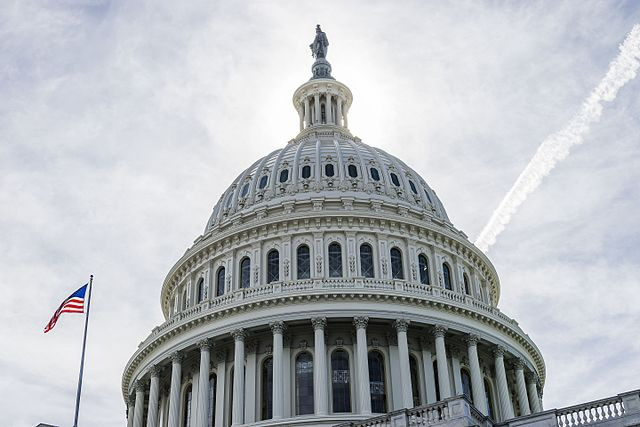As Congress returns to Washington after a six-week summer recess, lawmakers are immediately confronted with a familiar yet urgent challenge: preventing a government shutdown. With just three weeks remaining until the September 30 deadline, the stakes are higher than ever. Former President Donald Trump is pressuring Republicans to leverage the threat of a shutdown to advance key demands, creating a tense atmosphere as the presidential race looms large over legislative proceedings.
The most pressing task before Congress is to pass a stopgap funding bill, known as a continuing resolution (CR), to keep the government operational past the end of the fiscal year. However, the details and duration of this temporary measure have become a significant source of contention. The Republican-led House, under the influence of Trump and the party's right-wing members, has proposed a CR that would extend funding through March 28, 2025. This measure is tied to the SAVE Act, a GOP-led bill that seeks to overhaul voting laws nationwide by requiring proof of citizenship to vote-a provision staunchly opposed by Democrats.
House Speaker Mike Johnson, R-La., defended the proposal, stating, "House Republicans are taking a critically important step to keep the federal government funded and to secure our federal election process." However, the bill faces stiff opposition in the Democratic-controlled Senate, where it is unlikely to pass. Senate Majority Leader Chuck Schumer, D-N.Y., and Senate Appropriations Committee Chair Patty Murray, D-Wash., have warned that pursuing this "highly partisan path" could significantly increase the chances of a shutdown. They emphasized that responsibility for such an outcome would fall squarely on House Republicans.
The looming shutdown would have far-reaching consequences, potentially closing federal agencies, national parks, and other public services, while furloughing millions of workers. The timing is particularly critical, as the presidential election is just weeks away, and any disruption in government services could sway public opinion.
In addition to the funding battle, House Republicans are shifting their focus to investigating the new Democratic presidential ticket, led by Vice President Kamala Harris and Minnesota Governor Tim Walz. The House Education Committee recently subpoenaed Walz regarding his administration's response to a pandemic fraud scheme in Minnesota. At the same time, the House Oversight Committee launched an investigation into Walz's past interactions with Chinese Communist Party entities, further intensifying political tensions.
Republicans are also revisiting the botched U.S. withdrawal from Afghanistan in 2021, a topic that the Trump campaign has used to criticize Harris. House Foreign Affairs Committee Chair Michael McCaul, R-Texas, has threatened to hold Secretary of State Antony Blinken in contempt if he does not testify about the Afghanistan situation on September 19. These investigations are part of a broader GOP strategy to highlight perceived failures of the "Biden-Harris administration" ahead of the election.
Democrats, meanwhile, are launching their own counteroffensive, though their efforts are somewhat limited by their minority status in the House. Representative Jamie Raskin, D-Md., and Representative Robert Garcia, D-Calif., recently sent a letter to Trump, requesting evidence that he did not receive a $10 million bribe from Egyptian President Abdel Fattah El-Sisi during his 2016 campaign. This inquiry follows a report by The Washington Post about a secret Justice Department investigation into the alleged bribe, which Trump's campaign has dismissed as "fake news."
In the Senate, Schumer has made it clear that confirming President Joe Biden's nominees and federal judges will remain a priority for the rest of the year, including during the lame-duck session after the election. This commitment highlights the Democrats' determination to solidify their legislative achievements before the new Congress convenes in January.
Complicating the funding debate is the expiration of the farm bill for agriculture programs, which also occurs on September 30. The bill, which has already been extended once, is likely to be included in the CR, further adding to the legislative gridlock.
The Department of Veterans Affairs (VA) is also facing a budget shortfall of nearly $3 billion, raising concerns about potential disruptions in benefit payments to millions of veterans and survivors if Congress does not act by September 20. The shortfall is largely attributed to the PACT Act, a bipartisan law passed in 2022 that expanded VA healthcare and benefits. While there is bipartisan support for addressing the VA's budget issues, the timing and method of funding remain contentious.






